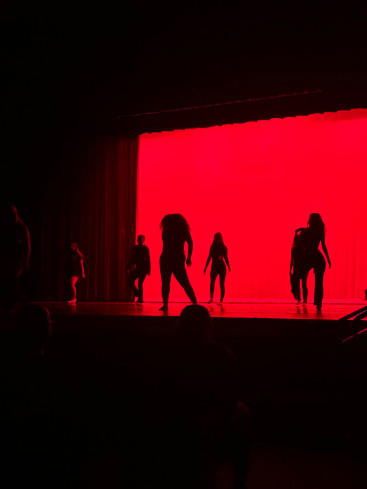How to travel safely this spring break during COVID-19
Out and about, beachgoers in Mallorca, Spain, do their best to both cool themselves off and keep safe during the coronavirus pandemic. Vacationers should continue to follow health expert’s guidelines during the upcoming spring break.
March 9, 2021
With the number of vaccinations ramping up across the country and new cases of Covid-19 down significantly since their peak in early January, students and families may feel safer traveling this spring break than they have in the past. However, families should still take precautions to make sure they do not catch the virus and spread it to others during their trips or at home. Medical professionals advise that you should continue wearing a face mask, socially distance when around people not in your bubble, and wash your hands more frequently. There is a trade-off to everything, and those not in a high-risk group may feel that spending quality time with family and friends is worth their relatively low risk of experiencing a debilitating case of COVID-19. However, in North Carolina, residents in group four of the vaccine rollout will not be allowed to get the immunization shot until March 24. This group includes adults with a higher risk of severe illness such as asthma, diabetes, cancer, and other conditions which cause a weakened immune system. Make sure you continue to practice the healthy habits to best avoid spreading COVID-19 to these high-risk individuals, as well as others, during your spring vacation.
There are a few things you can plan for your trip that will help reduce your chances of getting coronavirus. Instead of flying to a far-away destination by plane, take advantage of our state’s beautiful and varied landscape by visiting either our beaches or the mountains, both about a three-hour drive away from Raleigh. Traveling by car will limit your interactions to those in your bubble. Even with reduced seating, flights can be a source for covid spread. The seriousness that flights take Covid-19 can vary quite a bit because even when certain airlines maintain mask-wearing policies on their website, they may not actually apply it in practice. If you have to fly, experts say Delta and JetBlue are the airlines with the best health and safety precautions during this time. Another tip is to stay in a rental home or condo rather than in a hotel to further limit your interactions with people you do not know. While hotel sanitation procedures are usually very thorough, there is only so much you can do to prevent the spread of a viral disease as people inevitably come and go. Be sure to ask the owners of the property about their sanitation procedures, or if you have any health or safety requests, they will almost certainly be willing to help.
A final precaution you can take around others is to opt for outdoor activities and destinations because the atmosphere greatly reduces the chance for coronavirus to spread from person to person according to medical experts. Spending time out in nature is not only a great way to strengthen your relationships, but it is a much better way to avoid coronavirus than eating inside restaurants or touring a museum. Senior Logan Graney said he thought it was safe to spend spring break elsewhere: “I will personally be staying home this year, but do think that it is safe to go on vacation especially now that people are getting vaccinated.” Whether you are traveling for an adrenaline rush or just for a change in scenery, follow social distancing guidelines and only do what you feel comfortable with considering the risks to yourself and those you are close to.












